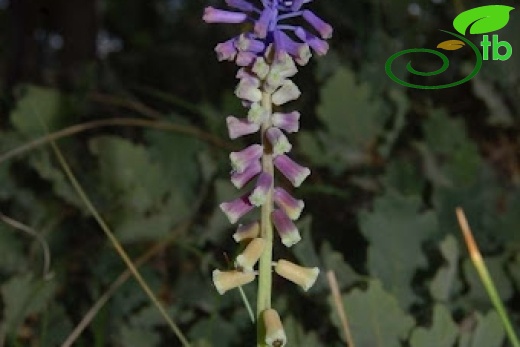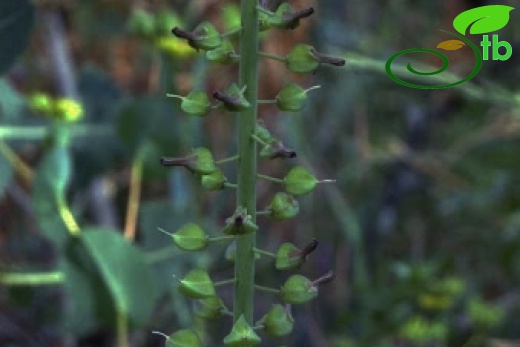Leopoldia tenuiflora
Leopoldia tenuiflora
Püsküllübaş
Bulb ovoid, 2-3 cm diam.; tunics pale greyish. Leaves 3-7, erecto-patent, linear, 15-30 cm x 4-20 mm, canaliculate, apex acute, ± hooded. Scape 20-60 cm, longer than leaves. Raceme usually lax, cylindrical, 6-30 x 1.5-3 cm, 30-150-flowered. Pedicels of fertile flowers horizontally spreading, 1-16 mm, shorter than perianth, not elongating after fertilisation. Fertile flowers in bud dusky violet, at anthesis narrowly oblong-obconical, 5-9 mm, tube ivory to pale beige, often darkening and pruinose when dried, shoulders sharply angled, ivory to cream; lobes brown to blackish, recurved, 0.5 mm. Pedicels of sterile flowers fleshy, bright violet, ascending to horizontal, 3.5-16 mm, forming a conspicuous coma. Sterile flowers obovate to narrowly tubular, 3.5-16 mm, bright violet, often slightly nodding. Capsule broadly ovate to orbicular, obtuse or emarginate, 12-16 mm, valves not strongly compressed. Seeds 2-3 mm diam. 2n = 18. Fl. 4-7. Pinus nigra and P. brutia forest, Juniper scrub, Artemisia steppe, pastures, rocky slopes, on limestone, serpentine, gypsum and volcanic soils, nr s.l.-2400 m.
C. & S.E. Europe, S. Russia, Transcaucasia, W. Syria, N. Iraq, W. Iran.













